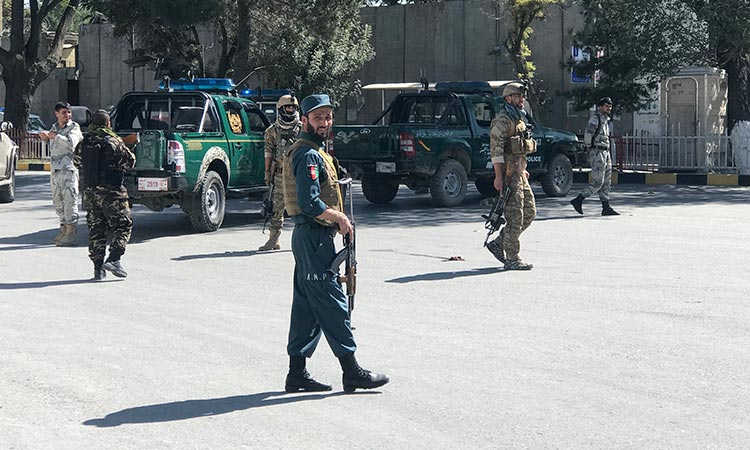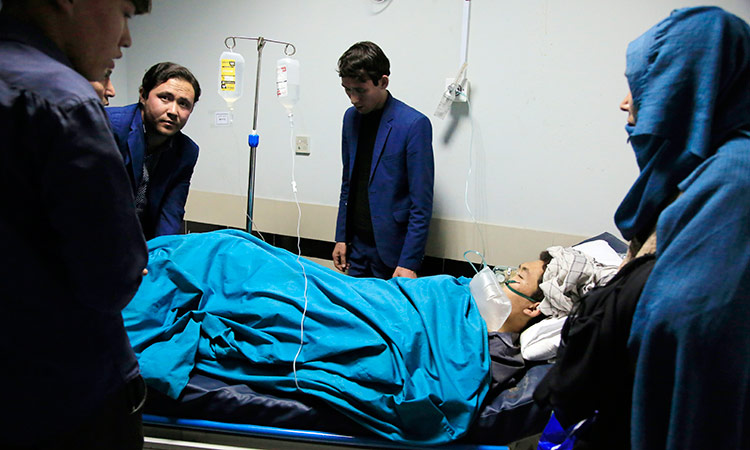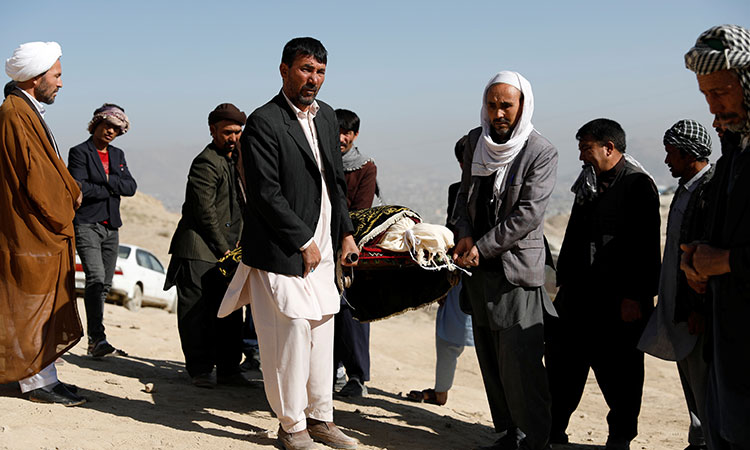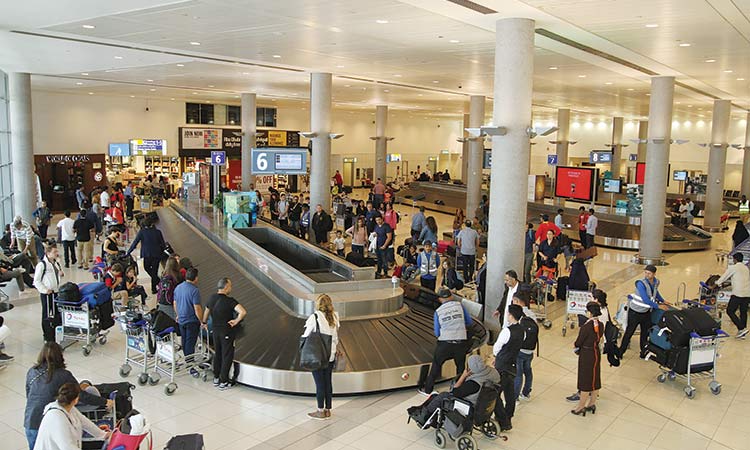Blasts in Afghan capital Kabul kill at least 12

Afghan security personnel inspect the site of a bomb explosion in Kabul, Afghanistan, on Tuesday. AP
Gulf Today Report
Two separate bomb blasts on two public transport buses killed at least 12 civilians in the Afghan capital Kabul, security officials said on Wednesday, the latest in a series of such attacks in recent weeks as foreign forces withdraw.
Both attacks took place on Tuesday evening in western parts of the capital that are home to many from the country's Shia community, a religious minority in Afghanistan targeted in the past by groups such as Daesh, the officials said.
A third bomb heavily damaged an electrical grid station in north Kabul, said Sangar Niazai, a spokesman for the government power supply department.
READ MORE
Afghan lecturers among four dead as bomb hits bus
Militants in twin attacks kill 4 troops in southwestern Pakistan
The initial two bombings, both targeting minivans, happened in a mostly ethnic Hazara area of the capital, said Rushan.
The first exploded near the home of a prominent Hazara leader, Mohammad Mohaqiq, and in front of a Shiite mosque. Most Hazaras are Shiites. The second bomb also targeted a minivan but Rushan said details were still being collected.
This photo shows the security personnel stroll in the street of Kabul. File photo
Police cordoned off the two areas and investigators were sifting through the rubble.
No one claimed responsibility for the bombings but the Daeh group affiliate operating in Afghanistan has previously declared war on minority Shiites, who make up roughly 20% of the majority Sunni Muslim nation of 36 million people.
The Daesh affiliate previously took responsibility for several attacks in May on Afghanistan's power supply stations in Kabul and in several other provinces.
On May 8, a car bomb and two roadside bombs exploded outside the Syed Al Shahada girls school, also in a predominantly Hazara neighborhood, killing nearly 90 people, many of them students. No one has yet claimed that attack but the US blamed Daesh.
The attacks come as the United States wraps up its longest war by withdrawing the last of its 2,500-3,500 troops along with 7,000 allied NATO forces. The last soldiers are to be gone by Sept. 11 at the latest generating fears of increased chaos in a country already deeply insecure.
Violence has escalated in Afghanistan even as the United States struck a peace deal with the Taliban in February 2020 under the previous Trump administration.
The agreement called for the last of the US and NATO troops to be out of the country by May 1. Instead, the withdrawal began on May 1 after U.S. President Joe Biden announced in mid-April America was ending its "forever war.” At the time, he declared terrorist groups like Al Qaeda and the Daesh had been sufficiently degraded and it was no longer necessary to keep thousands of troops deployed to Afghanistan.
Stalemated peace talks between the Afghan government and the Taliban are set to resume in the Middle Eastern country of Qatar, said a member of the Afghan government negotiation team, Nader Nadery.
The two sides have been meeting off and on since Sept. 12 but progress has been slight.
"I do not see any sign yet of meaningful talks from the Taliban on key issues to end this senseless war,” said Nadery.
Associated Press








